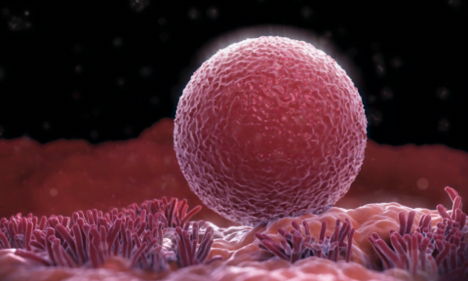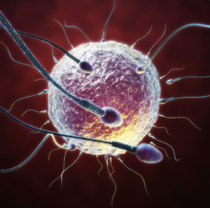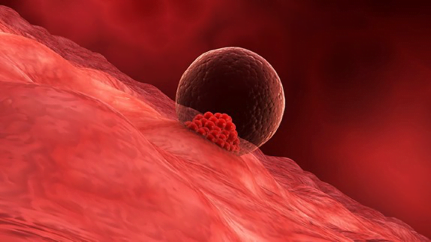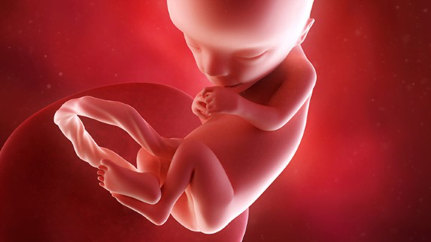
Pregnancy, or let’s say, planning a pregnancy is an impassioned phase for every couple. You prepare yourself in all ways to ensure delivering a healthy, beautiful baby. But finding out you have the MTHFR gene variant may feel daunting at the beginning and you might wonder how it can affect your ability to conceive, and if you’re pregnant already, what role does it play in determining the pregnancy outcomes. Through this blog, we’ll clearly outline the potential risks and provide answers to the questions that you have.
What is MTHFR?
MTHFR stands for 5 – methylenetetrahydrofolate reductase, an enzyme or protein that helps in the processing and metabolism of folate in the body. The MTHFR gene is responsible for the production and regulation of this enzyme. In the presence of a variant of this gene, both fertility and pregnancy may be affected. The gene variants most commonly found in people are C667T and A1298C. There are no causative factors for acquiring a variant. A polymorphic gene is passed down to you during conception if one or both of your parents carry it. Now since we know that MTHFR plays some major roles in the body, let’s see what MTHFR actually does in maintaining reproductive health and sustaining a pregnancy. (1)
Maintains egg and sperm quality
One of the most important things and the stepping stone of a successful pregnancy is the quality of the egg and sperm produced. In the ovaries, there are small groups of cells that protect and nurture a developing egg called follicles. A typical MTHFR enzyme utilises folate in the body and keeps homocysteine levels in range (below 7-8 μmol/L) in these follicles. This helps in maintaining the quality of egg cells and improving the capacity of the ovary to produce more eggs. However, when homocysteine levels rise above 14.7 μmol/L, the cells of these follicles start dying, which leads to diminished nutrient supply to the eggs. As a result, the eggs produced either die or are of low quality. (2)

Similarly, in men, elevated homocysteine levels can lead to faulty sperm DNA production, low-motility sperm cells, and low sperm count. (3) Semen with good quality and high-motility sperm cells is crucial for the successful fusion of sperm and egg. Therefore, if you carry a variant of the MTHFR gene, there is an increased chance that you may face conception problems.
Quality of the developing embryo
When the MTHFR enzyme processes homocysteine, methionine is produced. Methionine provides the methyl group for DNA production and transcription (production of RNA from DNA). In the presence of a gene variant, homocysteine levels may rise and the availability of methyl groups for healthy DNA and RNA production is reduced. As a result, abnormal cells are produced in the uterus and cervix, which do not have the capacity or receptivity to sustain implantation. A similar phenomenon is seen in the embryo. When the cells divide as the embryo grows, low-quality cells develop in the foetus with a high chance of developmental defects. (4)
Successful fertilisation
As we have mentioned before, when homocysteine levels are elevated, the eggs either die before maturation or are of low quality. Similarly, in men, high homocysteine levels produce low-quality sperm with faulty DNA. Not only that, but the sperm also lack motility, which is a pre-requisite for successful natural fertilisation or fusion of the egg and sperm cells. In such conditions, the egg or sperm either don’t reach the fertilisation site or die before that; thus, conception attempts fail.

Besides this, if low-quality sperm and egg fuse together, the resultant embryo either fails to complete full term, resulting in a miscarriage or grows into a foetus with developmental and neural tube defects. (5)
Sustaining Implantation
In the presence of a normal MTHFR gene, implantation takes place successfully and most women reach full term without complications unless other underlying medical conditions are present.

However, when the MTHFR gene variant is present, multiple factors arise that result in implantation failure, such as abnormal and incompetent uterine tissue for supporting the embryo, hormonal imbalance, abnormal clot formation blocking the nutrient supply to the foetus, and high blood pressure in the mother. These conditions can arise for women who conceive naturally or through artificial or assisted reproductive methods and treatments, such as IVF (in vitro fertilisation). (6), (7)
Development of the foetus
Adequate folate levels in the body is a necessity when a woman is pregnant. Folate helps in the overall development of the foetus, especially of its spine and spinal cord. If the foetus happens to get both mutated C677T genes from the mother and father, then that foetus is more likely to miscarry if folate levels are low in either parent.

Inadequate folate availability due to the presence of an MTHFR variant results in the development of neural tube defects, such as spina bifida. (8) In this condition, a gap develops in the spine of the growing foetus. Other issues include the development of Down syndrome and restricted growth within the uterus. (9)
Production of blood cells
Protein is the basic requirement for cell division and tissue growth. Folate and the MTHFR enzyme play a vital role in providing methyl groups for protein synthesis during the production of blood cells. Red blood cells (RBCs) carry oxygen to and carbon dioxide from different body parts, white blood cells (WBCs) fight infections and platelets are involved in preventing prolonged bleeding following tissue injury. Lack of folate or the presence of a polymorphic MTHFR gene can hinder the production of these cells in the mother’s body, which in turn, affect the immune system of the baby and may also result in low birth weight. (5)
Regulation of blood pressure during pregnancy
Research suggests there is a significant association between high homocysteine levels in the body and high blood pressure during pregnancy. Raised homocysteine levels result in stiffening of the blood vessels due to which the expecting mother may have high blood pressure. Other complications that may accompany high blood pressure include organ dysfunctions (of the kidneys, liver, and nerves), blood disorders like high creatinine levels, and foetal growth restriction in the uterus. (10)
Increased risk of Clotting
Normally, homocysteine gets recycled in the body to produce methionine and that’s how its levels are usually in range. But, if a person carries the MTHFR gene variant, high homocysteine level starts showing its damaging effect on the blood vessels. In response to this damage, the body starts producing blood clots to prevent blood loss. This phenomenon can also occur in the placenta where there is a mesh of fine blood vessels (capillaries) that supplies blood to the growing foetus and also filters waste from it. Formation of multiple blood clots in damaged blood vessels may cut off the blood supply to the foetus and also cause complete disruption or detachment of the placenta. As a result, a miscarriage happens. Unfortunately, if a woman has the MTHFR gene variant, recurrent miscarriages may occur. (5)
Conclusion
MTHFR polymorphisms may delay conception, cause miscarriages and be responsible for infertility. They may also pose potential issues in the foetus during pregnancyHowever, the good news is, if you optimise your folate levels prior to conception, then the risk is minimised and you have a better chance of falling pregnant. If you’re facing problems with conceiving or completing a full-term pregnancy, get yourself tested for the presence of an MTHFR gene variant. For more detailed and comprehensive information, you can also take our 10-day course here. Happy parenthood!
@emma
1. Take our Quiz to see if you might have the MTHFR gene.
2. How to test for the MTHFR gene.
References
- Folic Acid: Birth Defects COUNT Questions and Answers. National Center on Birth Defects and Developmental Disabilities, Centers for Disease Control and Prevention 2019. Viewed 2021
- Rosen MP, et al. Methylenetetrahydrofolate reductase (MTHFR) is associated with ovarian follicular activity.Fertil Steril. 2007 Sep;88(3):632-8.
- Liu K, et al. Role of genetic mutations in folate-related enzyme genes on Male Infertility. Sci Rep. 2015; 5(15548)
- Laanpere M, et al. Folate-metabolizing gene variants and pregnancy outcome of IVF. Reprod Biomed Online. 2011 Jun;22(6):603-14.
- Moll S, et al. Homocysteine and MTHFR Mutations. Circulation. 2015 Jul 7;132(1):e6-9.
- Zhu Y, et al. Prevalent genotypes of methylenetetrahydrofolate reductase (MTHFR) in recurrent miscarriage and recurrent implantation failure. J Assist Reprod Genet. 2018;35(8):1437-1442.
- Sheikhha M, et al. Association between MTHFR 1298A>C Polymorphism with RSA and IVF Failure. Iranian Journal of Pediatic Hematology Oncology. 2012; 2(3):109-115.
- Altomare I, et al. The 5, 10 methylenetetrahydrofolate reductase C677T mutation and risk of fetal loss: a case series and review of the literature. Thromb J. 2007;5:17.
- Zhang Y, et al. The association between maternal methylenetetrahydrofolate reductase C677T and A1298C polymorphism and birth defects and adverse pregnancy outcomes. Prenat Diagn. 2019 Jan;39(1):3-9.
- Parra-Pingel PE, et al. Pregnancy outcomes in younger and older adolescent mothers with severe preeclampsia. Adolesc Health Med Ther. 2017;8:81-86.

